Interview with Gary Moller
On Root Causes, HTMA (Hair Analysis), Copper, Aluminium, Fasting and much more.
I came across Gary Moller as a consequence of my breast feeding book summary that he highlighted on his website here.
He wrote:
The Substack article refers to the wonderful La Leche League. My dearly departed mother, Maisie, was a very determined woman. Mum helped introduce La Leche to New Zealand during the 1960's. The matrons who dominated the maternity hospitals that were dotted around the country in most of the timber towns of the 50s and 60s, including our home town of Putaruru, frowned upon the League's promotion of breast-feeding, so my impression was that Mum was regarded as being the "enemy". Bottle-feeding with formula was the norm back then, and breast-feeding was not permitted, or strongly discouraged in maternity hospitals. Mum stubbornly breast-fed all six of her children. As a student in 1972, I helped Dr Frances Broad with her data analysis for her ground-breaking research. Her research linked breast-feeding to the brain development of boys, but not for girls. She was the first researcher in the world to explain why boys almost exclusively populated remedial reading classes. Of those boys, when traumatic brain injuries were excluded, all of the boys in the remedial reading programmes included in her study were bottle-fed as babies. Dr Broad, who is sadly no longer with us, has had her research validated many times since. I later had the honour of presenting to the annual conference for the La Leche league on the topic of child nutrition. It goes without saying that breast-feeding was the norm for my own children.
Biology Factoid:
A man can not breast-feed a baby — just saying!
Gary is a functional nutrition consultant in New Zealand, and I’m really glad he agreed to this interview. There is a lot of practical and helpful information here.
With thanks to Gary Moller.
1. Gary, you've had a diverse career in health and sports. Can you please tell us about your journey from studying sports medicine and physical education to becoming a health practitioner focused on Hair Tissue Mineral Analysis?
You are asking me to summarise a journey that has extended over more than 50 years. To be very brief, it has been a long process of learning a lot about health and fitness. Then, I have added life experience, including helping people with better managing their health and injury problems. You could call this the acquiring of wisdom — the combining of knowledge with experience.
2. You've achieved impressive results in mountain biking, securing multiple UCI Masters World Championships. How has your experience as an athlete influenced your approach to health and wellness?
My life as an athlete and as a health professional go together. They are inseparable because being healthy and having the energy to work long hours and participate in demanding sports and outdoor activities are closely linked. This is especially true as we get older. I am now into my 70s, and still able to give young athletes a good run for their money. Most people lose a lot of physical strength and mobility from their 30s. It becomes most difficult to maintain a high level of energy and movement from 60 years old. As we get older, it is important to be able to prevent disease and deal with the damage from past accidents, illnesses, and the general wear and tear of life. This will help us live an active, productive life and live for a long time. We should all live to around 110 years.
I have been able to show, by personal demonstration, that most of the decrements we usually associate with getting old are not always inevitable. Most of the decline associated with ageing is either preventable, or can be slowed considerably.
3. In your practice, you emphasize addressing the root causes of ill health. Can you explain why you believe this approach is more effective than treating symptoms?
It may be helpful to treat symptoms, if a person is suffering and to buy some time because treating root causes usually takes a long time. But the key to staying healthy over a lifetime is to keep at least 20 years ahead of any disease. That means identifying the often subtle drivers of illness, such as nutrient imbalances, stress, and toxins and taking measures to either eliminate or minimise each one. Root causes are almost always entirely lifestyle and nutrition-related.
The best embodiments of root-cause strategies are these Hippocratic quotes, which have stood the test of time:
"Let Food be thy medicine"
and
"Body, heal thyself."
Unfortunately, many people are brainwashed to believe only in the pharmaceutical and surgical quick-fix — "Give me a shot, Doc" and the magic bullet. True health comes from patiently investing in one's health — anticipation and preparation well ahead of time. It is a lifelong strategy of making pre-emptive investments.
Addressing root causes, and not merely plastering over problems is simply good sense. A mechanical or structural engineer will confirm this.
4. Hair Tissue Mineral Analysis (HTMA) is a key tool in your practice. For those unfamiliar, can you explain what HTMA is and why you consider it so valuable?
The HTMA we refer to uses mass spectrometry to measure precisely the minerals within a person's hair cells. We can extrapolate these mineral concentrations and relationships to what is likely to be going on within the body at the cellular level. Different conditions, including disease and organ health produce characteristic patterns that are familiar to the trained practitioner.
You would never dream of running a business without a set of up-to-date accounts, would you? The same applies to your body. Without accurate measures of your nutritional status, including organ function, it is hardly any wonder that taking vitamins and other supplements are mostly a waste of time and money. It is a therapy applied randomly — blindly — and is doomed to yield disappointing results. HTMA is the closest technology we have got yet for a non-invasive set of accounts for the human body. It gives us an idea of a person's nutrient profit-loss situation, including toxic assets.
HTMA helps us to identify the root causes of illness, and to anticipate disease before it ever becomes and issue. Regular repeating of HTMA testing helps the patient and the practitioner keep their focus sharply on the important factors, and not wander off course.
5. You've mentioned that around 80% of women and 60% of men you see have issues with copper. What are some of the health implications of copper imbalance, and why do you think it's so prevalent?
Copper used to be a problem when copper piping was common for reticulating drinking water. This is no longer the case today. However, copper is intimately linked to female hormones. As one rises or drops in the body, so does the other. Copper is, therefore a female contraceptive (think copper IUD). As oestrogen rises, so does copper, so think of the effect of the female birth control pill. In the last 20 years, I have tested thousands of women, including grandmothers. I can say with certainty that copper levels are increasing in each generation, both boys and girls. This is the legacy of the great uncontrolled experiment on the female population of the world that began in the 1960s and which continues to this day. A clue to the increase in copper, passed intergenerationally by placental transfer is the now-commonplace "man-boobs" affecting boys and young men.
Copper has a tight "Goldilocks Zone" - too much or too little can result in significant health issues. When it is excessive, copper gives symptoms that are almost identical to lead toxicity.
Readers can learn more by going here.
6. Regarding the prevention of dementia, you emphasize the importance of being medication-free. Can you elaborate on the connection between certain medications and cognitive decline?
To be precise: I am talking about the absence of the NEED for medication.
Drugs such as the ones found in asthma and hayfever medications, steroids, antidepressants, blood pressure, and cholesterol medications come to mind. These can all accelerate cognitive decline. There is also great concern that the spike protein from the COVID mRNA drives neuroinflamation, thus accelerating cognitive decline.
Because allopathic medicine these days is fixated on chasing symptoms, this means resorting to more drugs to treat the symptoms of medications that were prescribed earlier. This creates a huge and complicated headache called "Polypharmacy":
https://www.garymoller.com/post/are-you-trapped-by-polypharmacy
https://www.garymoller.com/post/is-this-the-real-cause-of-the-dementia-epidemic
Hardly anybody dies from old age these days. Instead, they die from a combination of drugs side effects and malnutrition.
7. You've written about the potential risks of aluminum exposure. What are some common sources of aluminum that people might not be aware of, and how can they reduce their exposure?
Most vaccines contain aluminium.
It is an anti-caking agent added to fertilisers such as superphosphate, which may be a direct source of contamination, or via consuming legumes grown in fertilised soil.
It is in some refined salts as an anti-caking agent. Look for the food additive on the label: 554
It is in many deodorants, including the natural alum crystal ones that are sold in health stores. They sell aluminium-based products (alum), sometimes saying they are "aluminium chlorohydrate-free", or similar, which may be legally correct, but there is still aluminium in the product.
I call this deceptive practise, "health-washing".
Read the labels carefully.
8. You've written about the potential dangers of underarm deodorants containing aluminium. What alternatives do you recommend, and why?
Increased risk of cancer, arthritis, osteoporisis, and dementia, mostly all driven by aluminium's pro-inflammatory properties come to mind.
Read the labels carefully before buying. There are plenty of good alternatives. The best one is none while investing in good health. The need for deodorant is a construct of industry, designed to empty your pockets of your hard-earned cash.
9. Your approach to nutrition seems to favor traditional, nutrient-dense foods. Can you share your thoughts on why these foods are particularly beneficial for brain health?
Fat and cholesterol are critical for the brain's structure and for its function. So are the fat-soluble vitamins.
Read here:
https://www.garymoller.com/post/why-fatty-meat-is-good-for-your-brain
Food is nutrient-poor nowadays, while its energy content is increasing. Meanwhile, people expend less energy and this declines further, naturally as ageing progresses. This is a recipe for malnutrition-related ailments, including cognitive decline.
10. You've discussed the concept of "health tipping points." Can you explain what these are and why they're important to be aware of, especially as we age?
Watch the movie, "The Perfect Storm", starring George Clooney. The ideas in the movie, where there is the perfect confluence of several conditions, which on their own are manageable, but when they combine they become overwhelming.
I touch on it here:
https://www.garymoller.com/post/about-ehrler-danlos-syndrome
Most of us have several diseases smouldering away, but which never come to anything because our immune system keeps them suppressed. Another example is that we produce pre-cancerous cells all the time, but our immune system detects and cleans them out quickly. However, if there is exhausting stress, malnutrition, and the addition of a pro-inflammatory agent such as COVID spike protein, one of more of those smouldering conditions may flare into life with unexpected and devastating consequences.
11. In your practice, you often recommend specific nutrients for brain health. Can you tell us about a few key nutrients and their roles in supporting cognitive function?
These nutrients are best obtained via food then fortified with a few carefully selected supplements.
12. Intermittent fasting is a topic you've addressed. How do you see this practice benefiting brain health and overall wellness?
Intermittent fasting and ketosis stimulate stem cell activation and production of grown hormones. Both are essential for neuroregeneration. But there is no need to do fast harshly - gentle does it!
13. You've mentioned the importance of challenging oneself physically and mentally to prevent cognitive decline. Can you give some practical examples of how people can do this in their daily lives?
14. Can you explain your perspective on the role of fat in brain health? Many people still fear dietary fat, so what would you say to them?
I have already answered this question, but for more, including reassurance that fresh fats from healthy, grass-fed animals are not going to kill them, readers can go to this article here. Make sure to watch the video lecture in it, presented by Professor Tim Noakes.
https://www.garymoller.com/post/a-meat-eater-s-coronary-angiogram-report
15. For readers who are interested in learning more about your work or potentially seeking your services, what's the best way for them to stay connected or get in touch with you?
It is best they go to my personal website and sign on for the occasional newsletter updates that I send out:
I appreciate you being here.
If you've found the content interesting, useful and maybe even helpful, please consider supporting it through a small paid subscription. While everything here is free, your paid subscription is important as it helps in covering some of the operational costs and supports the continuation of this independent research and journalism work. It also helps keep it free for those that cannot afford to pay.
Please make full use of the Free Libraries.
Unbekoming Interview Library: Great interviews across a spectrum of important topics.
Unbekoming Book Summary Library: Concise summaries of important books.
Stories
I'm always in search of good stories, people with valuable expertise and helpful books. Please don't hesitate to get in touch at unbekoming@outlook.com
For COVID vaccine injury
Consider the FLCCC Post-Vaccine Treatment as a resource.
Baseline Human Health
Watch and share this profound 21-minute video to understand and appreciate what health looks like without vaccination.





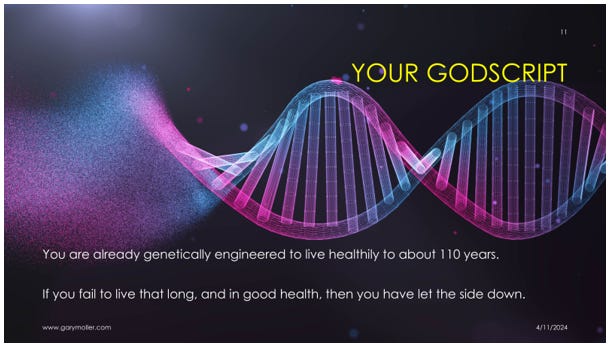
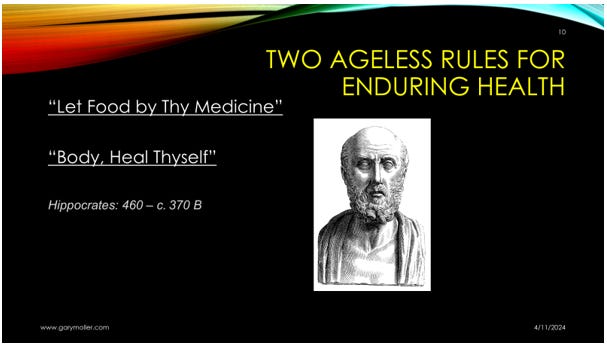
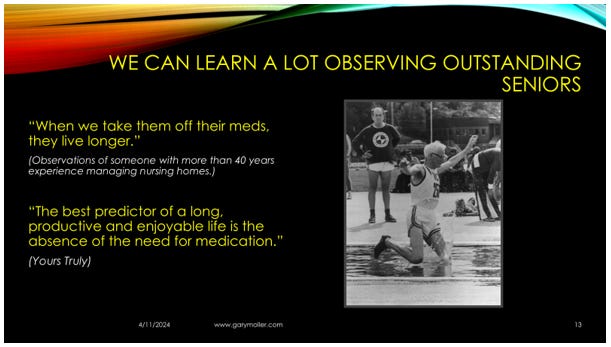
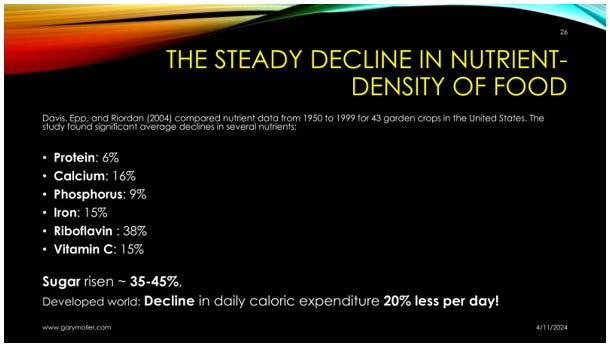
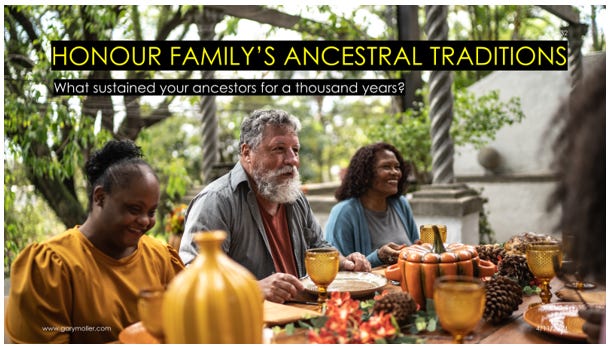
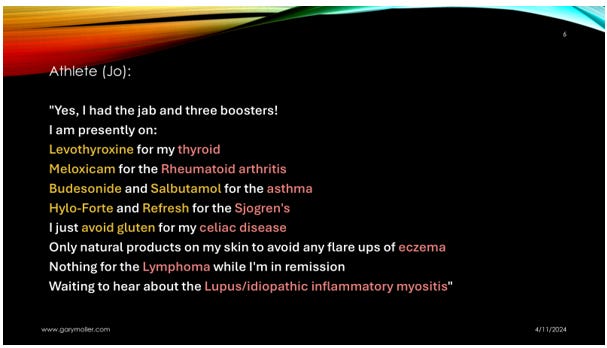
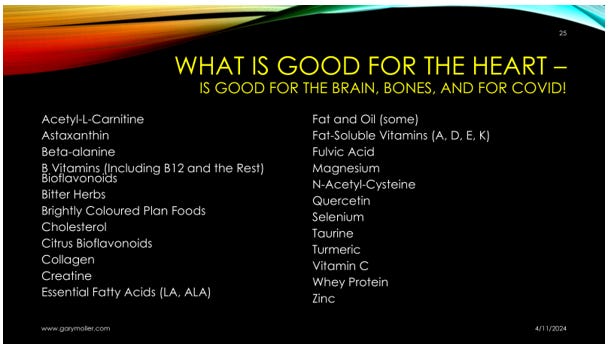
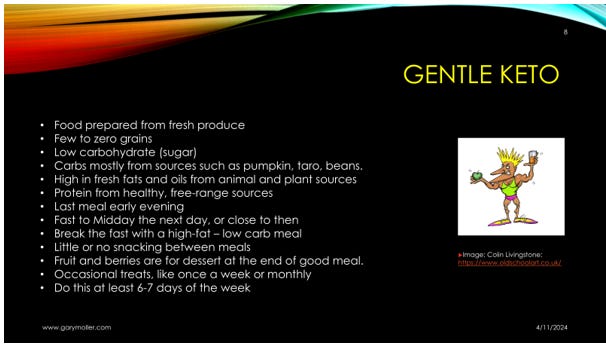
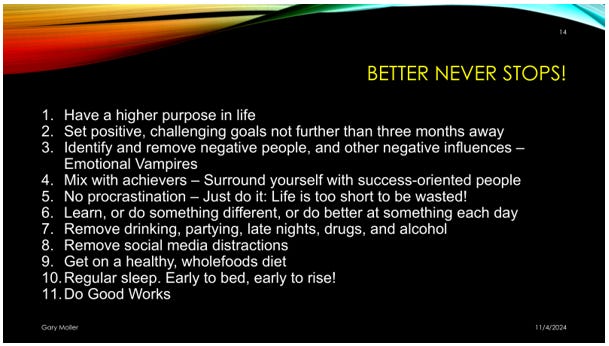
"A man can not breast-feed a baby — just saying!" EXACTLY!
The "Perfect Storm" is such a perfect way to state it. After my own nationwide study of the long-term health outcomes between vaxxed and entirely unvaxxed (with anything, ever) it became clear what the biggest storm was. The study proved that it's basically a mathematical impossibility vaccines are not the direct cause of well over 90% of all deadly and disabling conditions suffered by Americans, and by clear implication, other vaxxed populations. There's no reason to assume vaccines are only deadly when plunged into American arms;-)
And since that study was completed, I have learned that most, (almost all) of this destruction (at least from the older "soft-kill" jabs) can be reversed swiftly on a carnivore diet. Prior to mass vaccination, plant toxins appear to be something the human body was much better at tolerating without immediate or seriously negative health effects. And it appears the human digestive system was more suited to properly digesting plants - although, our naturally-occurring digestive PH and structure is clearly best suited for a carnivore diet.
So we've basically lost our prior capacity to tolerate not only plant toxins, but have become extremely sensitive to just about all toxins. Thank you Pfizer and the FDA for your wonderful effects upon "public health."
So carnivore saved me from a wheelchair by reversing the immune-system degradation of my ankles. People don't seem to understand that essential fatty acids and essential aminos are actual NUTRITION. And even in a perfectly healthy body, (which very few possess these days) it's quite difficult to obtain these items from plants, but extremely easy to get them out of animal products. And from what I'm seeing in the bloodwork of hardcore, long-time carnivores, the rest of the things we need are generously provided from eating animals. Carnivores never seem to suffer from ANY mineral or vitamin deficiencies, and they have the LOWEST markers (the true markers) for heart disease.